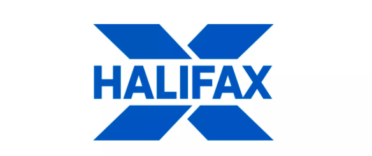 In August 2022, the Bank of England removed the "stress-testing" element of mortgage affordability checks, which means lenders no longer have to assess if potential borrowers would be able to afford mortgage payments if interest rates were to rise by 3% in the future. It believes the remaining affordability checks during the application process are robust enough to maintain responsible mortgage lending practices.
In August 2022, the Bank of England removed the "stress-testing" element of mortgage affordability checks, which means lenders no longer have to assess if potential borrowers would be able to afford mortgage payments if interest rates were to rise by 3% in the future. It believes the remaining affordability checks during the application process are robust enough to maintain responsible mortgage lending practices.
The decision followed a consultation process after it was estimated that around 50,000 people were being kept off the property ladder because of the stress testing requirement. The Bank of England believes it will simplify mortgage lending and help first-time buyers, movers and those looking to remortgage.
How is mortgage lending assessed now?
The previous rules were developed as part of the Mortgage Market Review 2014. The review outlined that lenders needed to consider four key elements when assessing whether a mortgage was affordable.
- Existing financial commitments and debts
- Number of financial dependents
- Day-to-day living expenses and spending habits
- A stress test looking at whether the loan would still be affordable if rates were 3% higher
The change, which took effect on 1st August 2022, means the final point has been scrapped, although the other 3 parts are still included. The Bank of England also stipulated that the majority of loans available on the market need to be no higher than 4.5 times the annual income for sole or joint mortgage applicants. This should avoid a return to pre-financial crisis lending levels.
Is your fixed rate deal coming to an end?
A free mortgage review will tell you the best option even if that's staying with your existing lender - No obligation
What do the changes mean for you?
The removal of stress testing is a significant change and in practice, does affect borrowing levels when you apply for a mortgage. Indeed, due to raised inflation in the UK, the cost-of-living crisis is having more of an effect on the amount people are allowed to borrow, with lenders looking at day-to-day expenses and bills as a core part of affordability. UK households are now paying more for their energy and food thanks to higher inflation and this is one of the factors when a lender considers how much you can afford to repay on mortgage debt.
High inflation and increased interest rates have prompted many UK borrowers to simply stick with their current lender for fear of failing affordability assessment by switching banks when they remortgage, but the number of mortgage holders choosing to switch lenders has increased during 2024.
What affordability means for remortgaging
As fixed-rate mortgage deals as well as others come to an end, most borrowers will be keen not to revert to paying the standard variable rate and will instead seek to secure a remortgage deal. Choosing between a remortgage or product transfer may be tricky for those households that have experienced an increase in outgoings that could adversely affect their affordability. However, it is usually wise to explore all options before opting to stay with your current lender - you can start the process of preparing to remortgage up to 6 months before the end of your mortgage deal.
The best way to find out how much you could possibly afford to borrow (as well as how to source the best deal for your individual circumstances) is to speak to a good whole-of-market, independent mortgage broker, such as Habito* or by finding an independent mortgage broker local to you using VouchedFor*. A mortgage broker will be able to advise on the amount you are likely to be able to borrow using a mortgage affordability calculator. You may also find our article "How much can I borrow?" helpful, as well as our mortgage comparison tool which allows you to search current mortgage and remortgage deals based on your needs.
If a link has an * beside it this means that it is an affiliated link. If you go via the link Money to the Masses may receive a small fee which helps keep Money to the Masses free to use. But as you can clearly see this has in no way influenced this independent and balanced review of the product. The following link can be used if you do not wish to help Money to the Masses - Habito, VouchedFor





